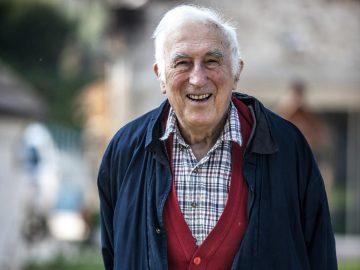Maggie Fergusson in MIL:
 LATE IN THE afternoon of June 22nd 1940, Hitler marched into a glade in the forest of Compiègne, 60km north of Paris. A giant swastika was unfurled as he saluted columns of Nazi troops, before hoisting himself into what had once been the private railway carriage of Marshal Foch. Inside this, on November 11th 1918, the Germans had signed the armistice that ended the first world war. So it was an apt spot for Hitler, sitting in Foch’s chair, and flanked by Goering, Ribbentrop and Hess, to witness the French surrender. Today, in a replica of the railway carriage, you can watch old newsreel of the Führer emerging into the evening sunshine and pulling on his leather gloves with an expression of grim satisfaction. This was a significant step towards the creation of his 1,000-year Reich. Four years later, of course, the Reich had collapsed, and Hitler was dead.
LATE IN THE afternoon of June 22nd 1940, Hitler marched into a glade in the forest of Compiègne, 60km north of Paris. A giant swastika was unfurled as he saluted columns of Nazi troops, before hoisting himself into what had once been the private railway carriage of Marshal Foch. Inside this, on November 11th 1918, the Germans had signed the armistice that ended the first world war. So it was an apt spot for Hitler, sitting in Foch’s chair, and flanked by Goering, Ribbentrop and Hess, to witness the French surrender. Today, in a replica of the railway carriage, you can watch old newsreel of the Führer emerging into the evening sunshine and pulling on his leather gloves with an expression of grim satisfaction. This was a significant step towards the creation of his 1,000-year Reich. Four years later, of course, the Reich had collapsed, and Hitler was dead.
Less than an hour’s stroll through the beech trees, a rather different piece of history is unfolding. Fifty years ago this August, a 35-year-old ex-naval officer, Jean Vanier, bought a tumbledown cottage in Trosly-Breuil, a village on the edge of the forest. The cottage had no lavatory, one tap and a wood-burning stove, and he called it L’Arche—The Ark. He then invited two men with mental disabilities, Raphaël Simi and Philippe Seux, to leave the bleak, overcrowded asylum where they had spent most of their adult lives, and to make a home with him. “There was”, he says, looking back, “no huge idea of doing something special that might change the world.”
He thought that he, Raphaël and Philippe might remain one small family, able to fit comfortably into his battered car for outings. But, like the biblical mustard seed, L’Arche grew beyond all expectations. Friends came to visit, and were inspired by Jean Vanier’s insistence that those with mental disabilities have gifts that many “normal” people lack. More houses were bought, more men and women rescued from institutions. Today, there are L’Arche communities in every continent of the world—146 of them, in 35 countries, from Bangladesh to Burkina Faso, Ireland to the Ivory Coast, Palestine to the Philippines.
More here.
